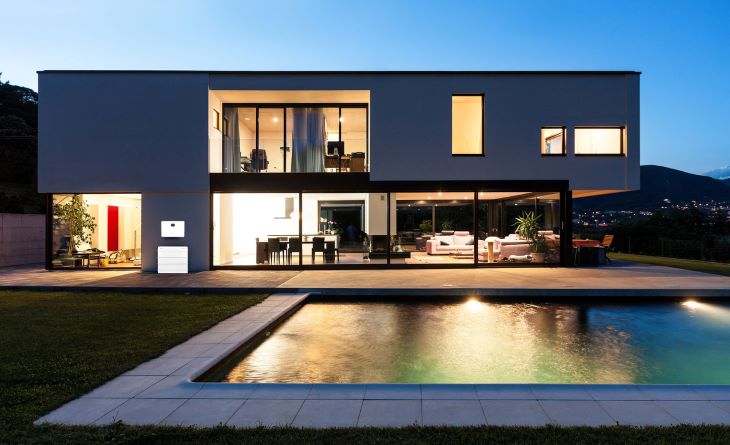
South Africans have had to become energy resilient in the face of persistent energy instability, with the vast majority of property owners installing alternative power sources, such as solar, generators and/ or inverters. But now that energy has become both more expensive and scarce, property owners must pay attention to making their buildings more energy efficient says Stephan van Niekerk, country head for South Africa, REHAU.
“Whether we are talking about heating or cooling, it makes sense to ensure that the building is as energy efficient as possible – heating and cooling technologies will work optimally, and costs will be minimised, if the building is properly insulated,” he says. “It’s estimated that the power needed for heating and cooling can account for up to 30% of the total power consumed. Whatever your power source, thermal integrity makes a lot of sense.”
It’s for this reason that REHAU uses uPVC for its windows and doors. uPVC lacks thermal conductivity, so that cold is not transmitted into the building in winter, nor heat in summer. Van Niekerk says that tests show that uPVC can save up to 30% more energy than aluminium windows.
In addition, he says, uPVC frames are highly durable and require less maintenance than competing products.
In a similar vein, ceiling, wall and floor insulation also plays a critical – and often neglected role – in making buildings thermally efficient.
Lambdaboard, the preferred insulation board for professionals and homeowners, is manufactured from polyisocyanurate (PIR), which has superior thermal qualities, in fact the highest R-Value per thickness.
Shayne Lessing, national marketing and CPD manager at Lambdaboard says, “It can be used in a wide variety of applications because it is so tough. It also protects against moisture in humid conditions, and is long-lasting,” he says. “This makes it a great choice when sustainability – in all senses of the word – is important.”
Materials like uPVC and Lambdaboard do not just have thermal properties, they also reduce noise, further enhancing the value proposition for both homeowners and commercial property owners.
Dave Nemeth, an experienced journalist covering the world of architecture, argues that South Africa’s energy crisis, combined with the growing global push towards environment-friendly architecture, are driving architects and property owners alike to place a much greater emphasis on a building’s thermal efficiency.
“uPVC windows and frames are more cost-effective not only during installation but also over time due to decreased maintenance costs and increased energy efficiency. These frames are more resistant to corrosion and fading than aluminium frames when exposed to the outdoors,” says Nemeth.
“The better insulated a building is, the less it is affected by external ambient temperatures and thus the less heating or cooling it needs – this is what we mean by thermal efficiency,” Nemeth says. “Using products like REHAU’s uPVC window and door frames, as well as Lambdaboard on walls and ceilings, makes a home or commercial property less expensive to heat or cool, and thus reduces the power it needs to maintain comfort levels.”
“Insulation is the hidden foundation for a truly environment-friendly building,” concludes Nemeth.
More news
- CELEBRATING EXCELLENCE IN THE RESIDENTIAL PROPERTY SECTOR
- PART 4: GIBS PANEL DISCUSSES INTEMEDIATE CITIES ROLE IN AFRICA’S DEVELOPMENT
- EXPOSED AGGREGATE PAVERS COMPLEMENT NEW LIFESTYLE CENTRE
- GIBS PANEL EXPLORES ROLE OF INTERMEDIATE CITIES IN SA’S DEVELOPMENT PART 3
- CITI-CON’S CONCRETE KNOWLEDGE SUCCESSFULLY DEPLOYED ON NEW LANDMARK DEVELOPMENT





